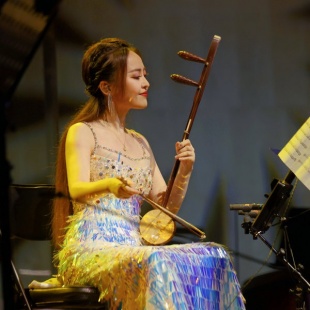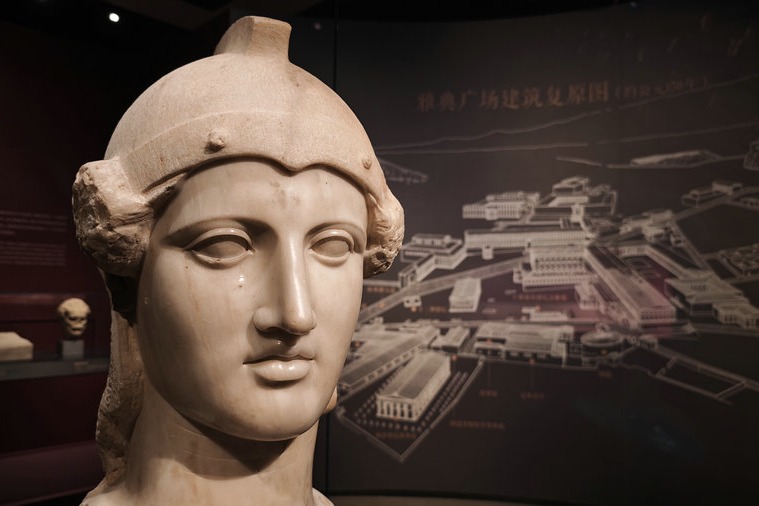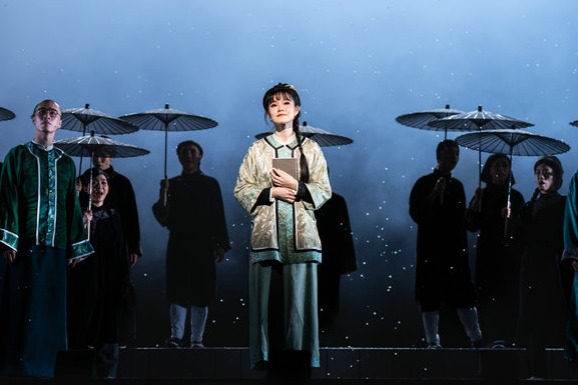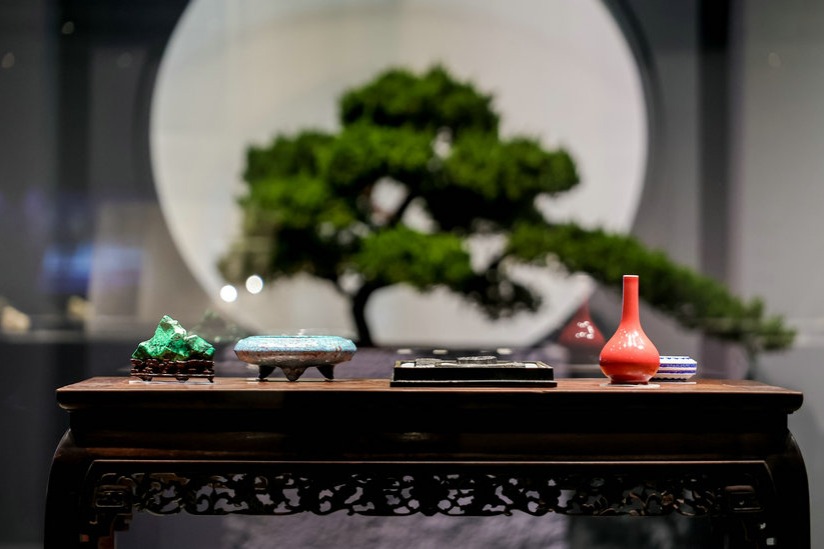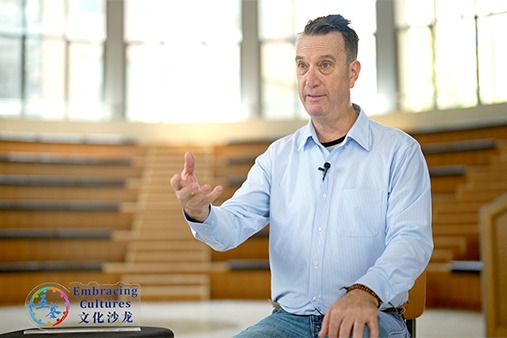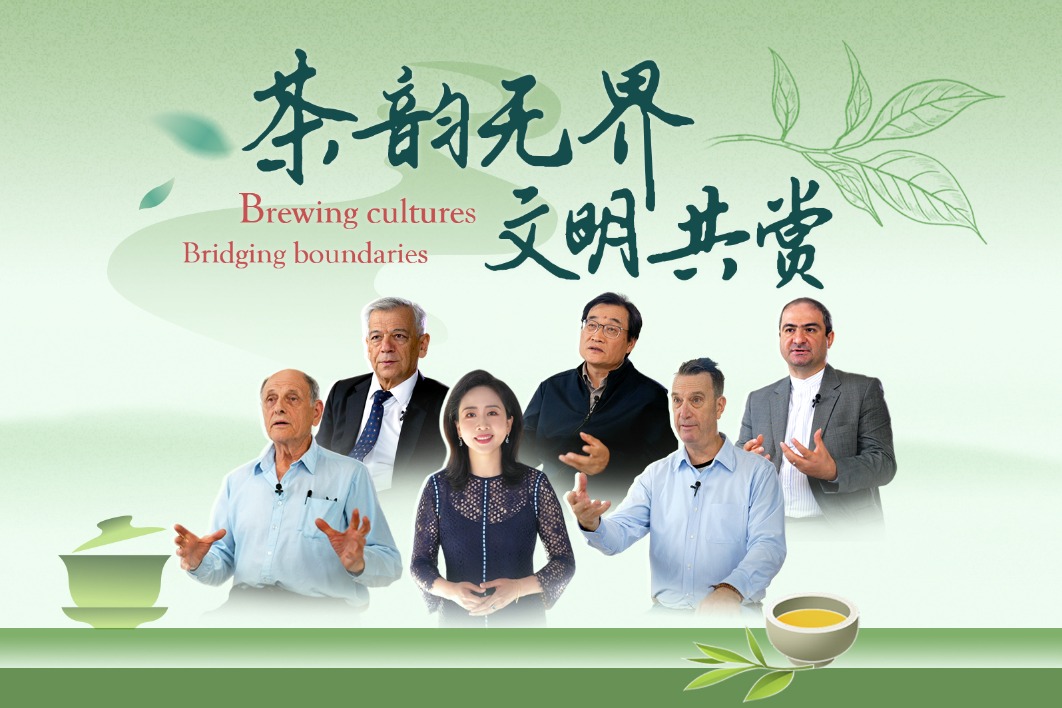Teacher's concert strings together traditional and modern techniques

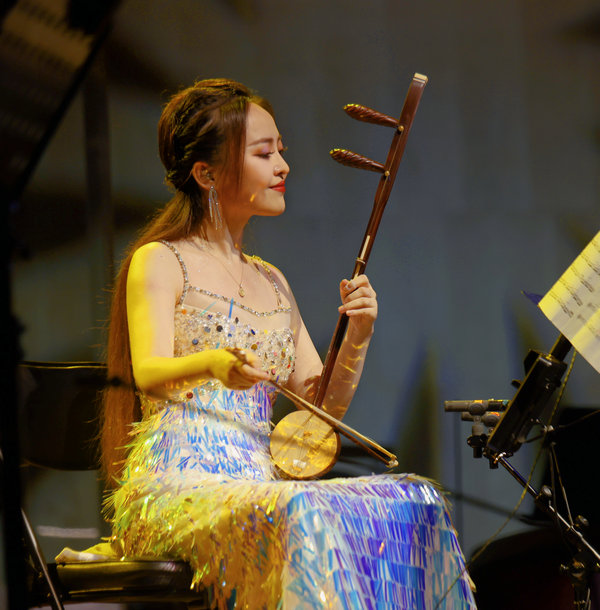
Wang Xiao, a teacher at the China Conservatory of Music and a huqin virtuoso, performed in the school's concert hall in Beijing on Friday.
With a traditional Chinese ensemble and an electronic music band, Wang performed nine pieces, including six premieres, deeply rooted in traditional Chinese opera with a cutting-edge twist of contemporary music.
Huqin is a family of traditional instruments, mostly recognized by the erhu. It refers broadly to various Chinese two-stringed fiddles played with a bow.
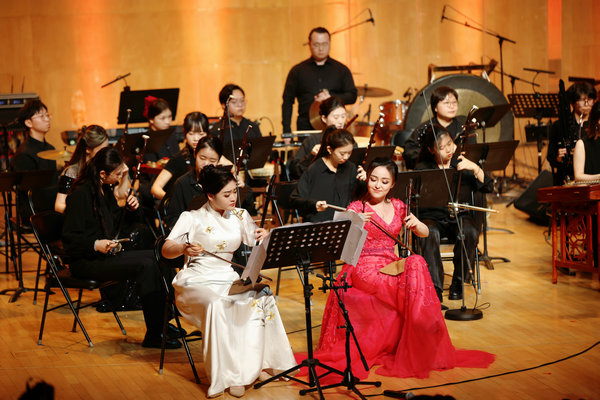
From the robust Qinqiang Opera of northwestern China to the gentle Huangmeixi Opera tunes of the south, and from Yuju Opera in central China to the powerful Peking Opera, Wang uses different huqin variants and playing techniques to construct an audio map of traditional Chinese opera traditions.
The concert opened with Ascending the Palace, a debut erhu quartet adapted from a classic Yuju Opera piece. Performed by four of Wang's students, the piece incorporated modern techniques to highlight the traditional essence of the old opera.
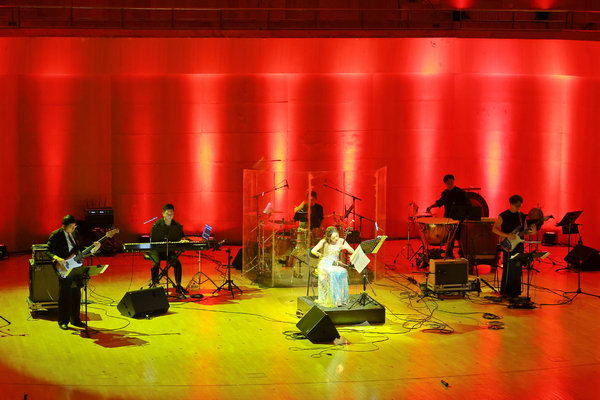
The second half featured Yuju Opera Bilingual, a more experimental piece that interpreted operatic dialogue. Wang's erhu and musician Zhou Zhou's zhonghu formed a "male-female duet" structure — the erhu mimicking the clear, high-pitched female vocals and the zhonghu rendering the deeper male voice.
The concert concluded with Westward Journey, a composition by Rao Pengcheng, which elevated the fusion to a climax. The erhu no longer simply reproduced opera melodies but became a tonal element in an ambient soundscape. The piece used the metaphor of a "westward journey" to express cultural blending.


